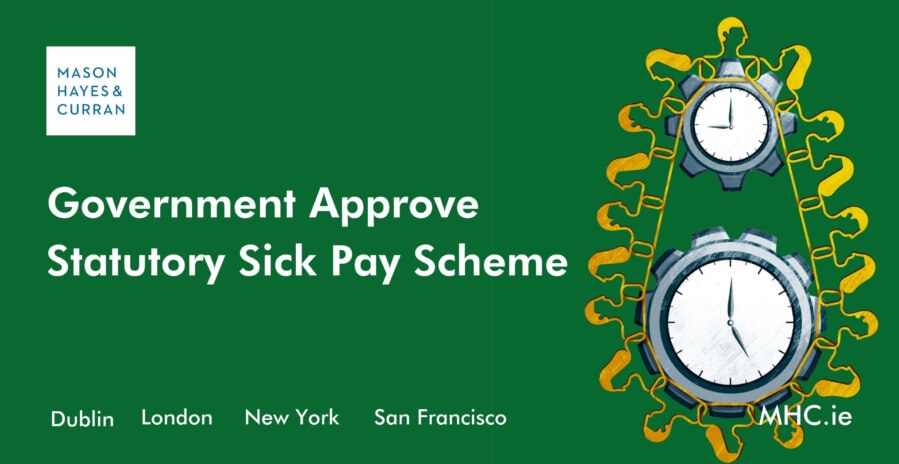
In June of last year, the Tánaiste and Minister for Enterprise, Trade and Employment, Leo Varadkar TD confirmed details of plans to introduce a statutory sick pay scheme for employees that was due to begin in January 2022. This proved to be an ambitious target, but ultimately the Sick Leave Bill 2022 was approved by the Cabinet on 29 March 2022.
The scheme provides for a phased introduction of statutory sick pay over a four-year period and will be effective as soon as the new laws are enacted.
Summary of Bill
Employees will have the following statutory entitlements over the four-year period:
- 3 days in 2022
- 5 days in 2024
- 7 days in 2025
- 10 days in 2026
The rate of sick pay will be set at 70% of the employee’s wage subject to a daily threshold of €110. This threshold may be reviewed and amended over time in line with changes in income/inflation. The Tánaiste has assured employers that “the scheme is designed to be fair and affordable with the minimum complexity and administrative burden for employers."
In order to qualify for the payment, employees will have to:
- Provide their employer with a medical certificate, and
- Have a minimum of 13 weeks' service.
Other important points for employers to consider include:
- An employer can apply to the Labour Court for an exemption from paying statutory sick pay due to financial difficulties. If granted, the exemption will be in place for a minimum of 3 months and a maximum of 1 year.
- If employees are on probation, undergoing training or apprenticeship and the employer considers the employee’s absence on statutory sick leave would interfere with probation, training or apprenticeship, the employer may require that the period of probation, training or apprenticeship be suspended during the period of statutory sick leave.
- An employee who is absent on statutory sick leave should be treated as if they have not been absent. These absences should not affect any right related to the employee’s employment whether conferred by statute, contract or otherwise. Importantly, an employee should not be penalised for exercising or proposing to exercise their statutory sick leave entitlement.
- If an employer does not abide by the regulations, an employee may bring a claim to the Workplace Relations Commission (WRC). The WRC in turn may make an award that is ‘just and equitable' having regard to all circumstances. Any award, however, cannot exceed 20 weeks’ remuneration under the draft legislation.
- Employers will be required to keep a record of statutory sick leave taken by each employee for 4 years. Failure to do so is an offence, liable to a fine on summary conviction of up to €2,500.
Next steps
Employers should consider reviewing their contracts and sick leave policies to ensure they cover the minimum statutory entitlements under the sick pay scheme when it does come into force later this year . They should also ensure payroll are prepared for the upcoming changes and begin early communication with employees about their rights and obligations under the scheme.
For more information and expert advice on how your organisation can ensure full compliance with the new scheme, please contact a member of our Employment & Benefits team.
The content of this article is provided for information purposes only and does not constitute legal or other advice.





